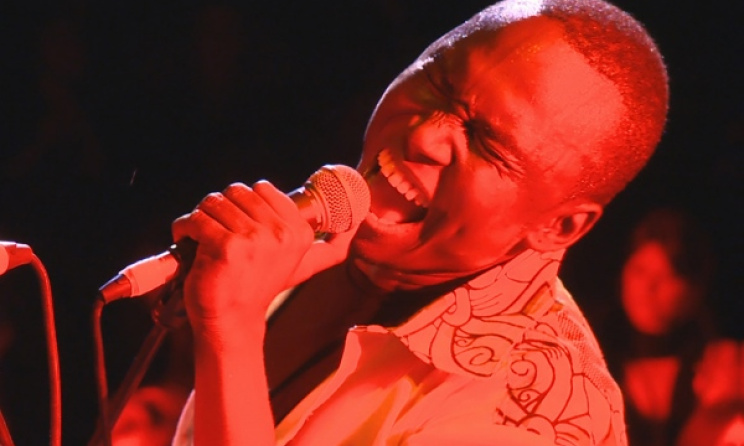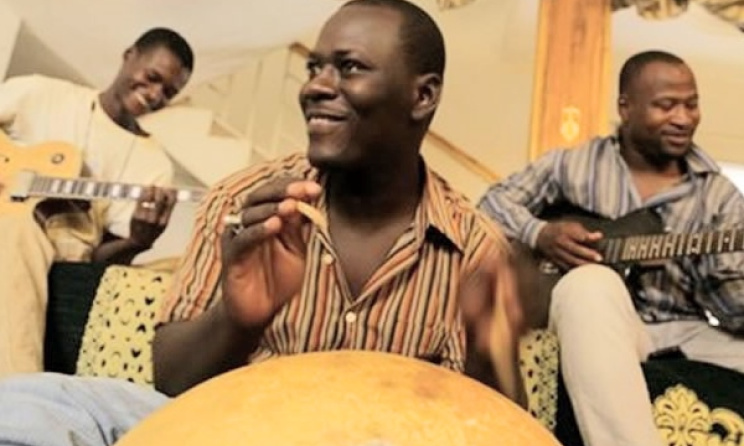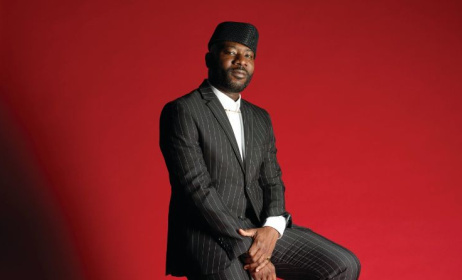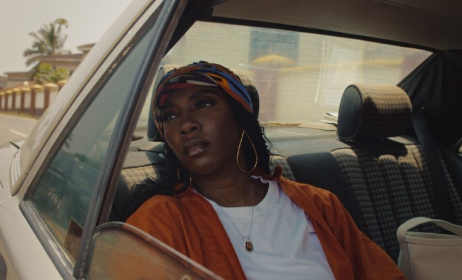Malian documentary to be screened on Music Freedom Day
The AfriDocs series of African documentary films returns this month to DStv and GOtv subscribers across sub-Saharan Africa. Throughout the month of March, AfriDocs will screen various award-winning documentaries every Thursday night on [ED] (DStv channel 190) and GOtv channel 65.
 Ali from Songhoy Blues features in the documentary 'They Will Have to Kill Us First'. Photo: www.theywillhavetokillusfirst.com
Ali from Songhoy Blues features in the documentary 'They Will Have to Kill Us First'. Photo: www.theywillhavetokillusfirst.com Guitarist Moussa Sidi features in the documentary 'They Will Have to Kill Us First'. Photo: www.theywillhavetokillusfirst.com
Guitarist Moussa Sidi features in the documentary 'They Will Have to Kill Us First'. Photo: www.theywillhavetokillusfirst.com A scene from the documentary 'They Will Have to Kill Us First'.
A scene from the documentary 'They Will Have to Kill Us First'.
AfriDocs presents some of the most powerful and important documentaries of the past few years, often with a particular focus on music - particularly in February and June 2015. These films highlight many of the individuals and communities speaking out against oppression and abuse of power in both the personal and political spheres.
The month begins with a celebration of Music Freedom Day, celebrated in numerous countries on 3 March. Music Freedom Day is a powerful and united manifestation that supports persecuted, prosecuted and imprisoned musicians, many of whose only crime has been that they have spoken up against authorities and insisted on the right to express themselves through their music. One of the many recent projects to mark the day include the release of a new version of Fela Kuti’s ‘Zombie’ featuring musicians from throughout the Middle East and Africa.
To commemorate this day, AfriDocs will screen They Will Have to Kill Us First, a documentary that looks at what happened in Mali when music ‘disappeared’ practically overnight in 2012, when Islamic extremists groups rose up to capture an area the size of the UK and France combined. ;usic was literally outlawed overnight, but rather than lay down their instruments, Mali’s musicians fought back.
Directed by Johanna Schwartz, this critically acclaimed feature-length documentary features interviews with musicians like Songhoy Blues (who fled the country to live in exile), guitarist Moussa Sidi, as well as female singer/activists Disco and Kharia Arby (aka ‘The Nightingale of the North’). The film was earlier showcased at WOMEX in Hungary in October 2015. During AfriDocs it will be screened along with Symphony Kinshasa, a short film about live in the capital of DR Congo.
Later in the month, on 17 March, another music-related documentary will be featured on AfriDocs. Francois Verster’s The Dream of Shahrazad is a feature-length film that locates political expression before, during and after the Egyptian revolution (and also within recent times in Turkey and Lebanon) within a broader historical and cultural framework: that of storytelling and music. More particularly, it looks at the legacy of the famous collection of stories known as The 1001 (or ‘Arabian’) Nights.
On 31 March, AfriDocs takes viewers to Burkina Faso with two more documentaries. Christian Carmosino’s A Barefoot Revolution looks at the events of October 2014, when Burkina Faso’s capital Ouagadougou was the theatre of massive demonstrations against the country’s President, Blaise Compaoré, who attempted to change the Constitution in order to keep the power for 15 more years. As a result of his actions, the protest turns into a full revolution, lasting six days and nights and ending with Compaoré’s departure after a dictatorship of 27 years. The film shows how a transitional government took over and prepared the elections planned for October 2015.
While the film does not focus specifically on music, musicians have played a central role in Burkina Faso’s political struggles. Prominent rapper, producer and activist Smockey is the leader of a popular socio-political movement called Balai Citoyen (The Citizens’ Broom), which led the revolt against the dictatorial actions of Compaoré. Following an attempted coup in September 2015, Smockey’s Studio Abazon was destroyed by forces loyal to Compaoré’s former regime in an effort to silence politically active musicians.
A Barefoot Revolution will be screened alongside Capitaine Thomas Sankara, director Christophe Cupelin's portrait of Thomas Sankara, president of Burkina Faso from 1983 until his murder in 1987.
Don’t miss the opportunity to catch these and other award-winning films every Thursday this month at 19h55 Central African Time (GMT+2) on [ED] DStv Channel 190 and GOtv channel 65 across sub-Saharan Africa, with repeats on Sundays. For more details visit the AfriDocs website or Facebook page.



































Comments
Log in or register to post comments